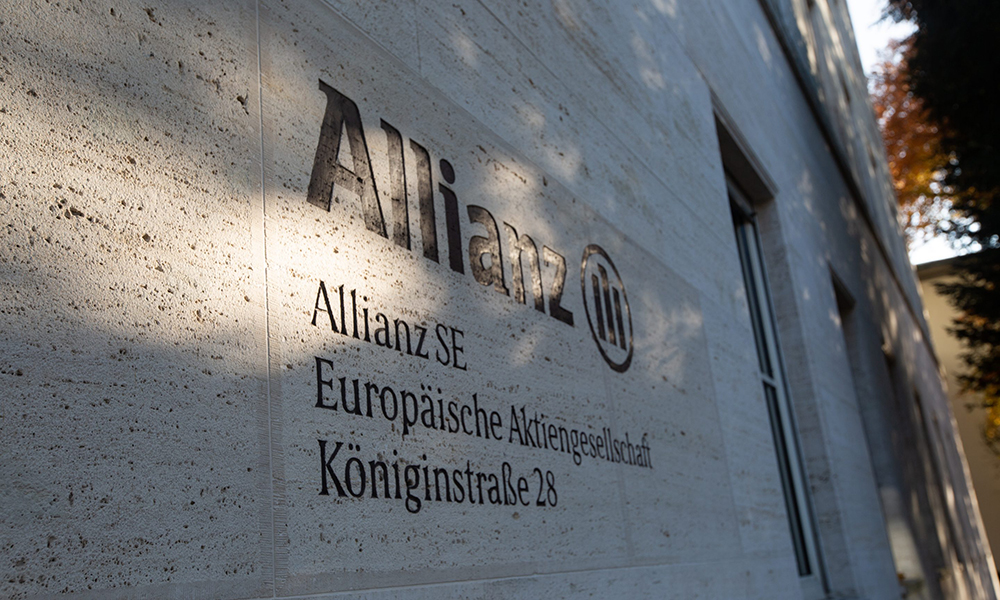
德國保險業(yè)巨頭安聯(lián)(Allianz)周一正式放棄收購新加坡保險公司英康保險(Income Insurance)的多數(shù)股權(quán)。英康保險在一份單獨的聲明中證實安聯(lián)撤回了報價。
自10月以來,擬議的收購案一直懸而未決,因為新加坡政府表示將阻止以最初提出的形式進行交易。安聯(lián)此次撤回報價正式結(jié)束了這筆交易。這筆交易一度引起公眾熱議,人們討論的焦點是外國保險公司是否可以收購一家肩負社會使命的新加坡公司。
今年早些時候,在《財富》世界500強中排在第82位的安聯(lián),提出收購英康保險51%的股份。這筆交易價值22億新加坡元(約合16.3億美元),于7月17日宣布,如果成功,安聯(lián)將成為亞洲第四大保險公司。
但這筆交易很快遭到了公眾的強烈反對,包括一些新加坡名人。人們爭議的核心是英康保險在新加坡社會中扮演的角色及其作為一家合作社的原始身份。10月14日,新加坡政府叫停了這筆交易,理由是對擬議交易結(jié)構(gòu)以及英康保險在安聯(lián)領導下能否繼續(xù)履行其社會使命的擔憂。
爭論的焦點是什么?
英康保險成立于1970年,作為一家合作社,旨在滿足新加坡民眾對經(jīng)濟實惠的保險的需求。英康保險于2022年進行了公司化改制,但公司近73%的股份由職總創(chuàng)優(yōu)企業(yè)合作社(NTUC Enterprise)持有。
在英康保險改制時,政府允許其將價值20億新加坡元(約合14.8億美元)的盈余資金轉(zhuǎn)移到新的公司實體,而不是捐贈給國家的“合作社清算賬戶”,該賬戶內(nèi)是用于支持更廣泛的合作社運動的資金。
然而,當安聯(lián)提出收購英康保險時,它同意在三年內(nèi)向股東支付近14億美元,這引起了新加坡政府的關注。
新加坡文化、社區(qū)及青年部部長唐振輝在10月份對議會表示:“擬議的資本縮減與給予豁免的前提條件相悖。”
一些新加坡名人也公開反對這筆交易,質(zhì)疑英康保險在新東家領導下是否能夠履行其社會使命。
新加坡資深外交官許通美表示,他擔心像安聯(lián)這樣的外國所有者是否還會投入資源開發(fā)產(chǎn)品,滿足那些最有需要的人群,例如英康保險在2010年推出的為有孩子的家庭提供免費保險的計劃,或其2013年為自閉癥兒童提供保險的決定。
英康保險的網(wǎng)站顯示,公司目前擁有約170萬客戶。新加坡有約418萬常住人口和約186萬非常住人口,包括外籍家政工人、家屬和外國留學生。外國人可以從英康保險購買保險。
英康保險尚未改制時的首席執(zhí)行官陳諸杰7月底在一篇Facebook帖子中寫道,英康保險的宗旨是服務新加坡人,而“不是安聯(lián)歐洲公司的股東”。陳諸杰還補充說,英康保險的DNA是“以人為本,而不是以利潤為先”,公司永遠不應該背棄定義其身份和使命的這一原則。
在整個事件中,英康保險堅持認為其行為是善意的,旨在保護包括保單持有人和股東在內(nèi)的所有利益相關者的利益。該保險公司在10月份表示,安聯(lián)收購多數(shù)股權(quán)的交易計劃將進一步增強英康保險的財務韌性,并使其在未來面臨任何金融危機時能夠獲得額外的資本支持。
當前的情況如何?
10月,在新加坡政府稱將阻止該交易后,安聯(lián)表示將與利益相關者密切合作,考慮對擬議的交易結(jié)構(gòu)進行修改。
然而,周一,負責亞太地區(qū)業(yè)務的安聯(lián)管理委員會成員雷納特·瓦格納表示,安聯(lián)尊重新加坡政府的決定。他堅持認為,公司仍然相信安聯(lián)與英康保險的結(jié)合將對其保單持有人和新加坡有利。
英康保險表示,將繼續(xù)為股東探索流動性選項,股東可以在自愿的基礎上繼續(xù)買賣其股份,并且公司將正常運營,不會對保單持有人產(chǎn)生影響。
該交易的失敗使安聯(lián)的亞洲計劃受挫。安聯(lián)目前是亞洲第九大保險公司;如果成功收購英康保險將使其躍升至第四位。安聯(lián)稱亞太地區(qū)是一個“具有重要戰(zhàn)略意義的增長區(qū)域”,并在12月10日再次指出該地區(qū)的潛力,特別是在該地區(qū)人口老齡化的情況下提供退休解決方案。去年,這家德國保險公司財產(chǎn)-意外險和人壽/健康零售保險業(yè)務的總營業(yè)額為77億歐元(約合80.7億美元)。
目前,亞洲的保險業(yè)由中國人壽保險(China Life Insurance)、平安保險(Ping An Insurance)和友邦保險(AIA Group)等本地公司主導。預計到2030年,亞太地區(qū)的目標市場總規(guī)模將超過歐洲或美國。(財富中文網(wǎng))
譯者:劉進龍
審校:汪皓
德國保險業(yè)巨頭安聯(lián)(Allianz)周一正式放棄收購新加坡保險公司英康保險(Income Insurance)的多數(shù)股權(quán)。英康保險在一份單獨的聲明中證實安聯(lián)撤回了報價。
自10月以來,擬議的收購案一直懸而未決,因為新加坡政府表示將阻止以最初提出的形式進行交易。安聯(lián)此次撤回報價正式結(jié)束了這筆交易。這筆交易一度引起公眾熱議,人們討論的焦點是外國保險公司是否可以收購一家肩負社會使命的新加坡公司。
今年早些時候,在《財富》世界500強中排在第82位的安聯(lián),提出收購英康保險51%的股份。這筆交易價值22億新加坡元(約合16.3億美元),于7月17日宣布,如果成功,安聯(lián)將成為亞洲第四大保險公司。
但這筆交易很快遭到了公眾的強烈反對,包括一些新加坡名人。人們爭議的核心是英康保險在新加坡社會中扮演的角色及其作為一家合作社的原始身份。10月14日,新加坡政府叫停了這筆交易,理由是對擬議交易結(jié)構(gòu)以及英康保險在安聯(lián)領導下能否繼續(xù)履行其社會使命的擔憂。
爭論的焦點是什么?
英康保險成立于1970年,作為一家合作社,旨在滿足新加坡民眾對經(jīng)濟實惠的保險的需求。英康保險于2022年進行了公司化改制,但公司近73%的股份由職總創(chuàng)優(yōu)企業(yè)合作社(NTUC Enterprise)持有。
在英康保險改制時,政府允許其將價值20億新加坡元(約合14.8億美元)的盈余資金轉(zhuǎn)移到新的公司實體,而不是捐贈給國家的“合作社清算賬戶”,該賬戶內(nèi)是用于支持更廣泛的合作社運動的資金。
然而,當安聯(lián)提出收購英康保險時,它同意在三年內(nèi)向股東支付近14億美元,這引起了新加坡政府的關注。
新加坡文化、社區(qū)及青年部部長唐振輝在10月份對議會表示:“擬議的資本縮減與給予豁免的前提條件相悖。”
一些新加坡名人也公開反對這筆交易,質(zhì)疑英康保險在新東家領導下是否能夠履行其社會使命。
新加坡資深外交官許通美表示,他擔心像安聯(lián)這樣的外國所有者是否還會投入資源開發(fā)產(chǎn)品,滿足那些最有需要的人群,例如英康保險在2010年推出的為有孩子的家庭提供免費保險的計劃,或其2013年為自閉癥兒童提供保險的決定。
英康保險的網(wǎng)站顯示,公司目前擁有約170萬客戶。新加坡有約418萬常住人口和約186萬非常住人口,包括外籍家政工人、家屬和外國留學生。外國人可以從英康保險購買保險。
英康保險尚未改制時的首席執(zhí)行官陳諸杰7月底在一篇Facebook帖子中寫道,英康保險的宗旨是服務新加坡人,而“不是安聯(lián)歐洲公司的股東”。陳諸杰還補充說,英康保險的DNA是“以人為本,而不是以利潤為先”,公司永遠不應該背棄定義其身份和使命的這一原則。
在整個事件中,英康保險堅持認為其行為是善意的,旨在保護包括保單持有人和股東在內(nèi)的所有利益相關者的利益。該保險公司在10月份表示,安聯(lián)收購多數(shù)股權(quán)的交易計劃將進一步增強英康保險的財務韌性,并使其在未來面臨任何金融危機時能夠獲得額外的資本支持。
當前的情況如何?
10月,在新加坡政府稱將阻止該交易后,安聯(lián)表示將與利益相關者密切合作,考慮對擬議的交易結(jié)構(gòu)進行修改。
然而,周一,負責亞太地區(qū)業(yè)務的安聯(lián)管理委員會成員雷納特·瓦格納表示,安聯(lián)尊重新加坡政府的決定。他堅持認為,公司仍然相信安聯(lián)與英康保險的結(jié)合將對其保單持有人和新加坡有利。
英康保險表示,將繼續(xù)為股東探索流動性選項,股東可以在自愿的基礎上繼續(xù)買賣其股份,并且公司將正常運營,不會對保單持有人產(chǎn)生影響。
該交易的失敗使安聯(lián)的亞洲計劃受挫。安聯(lián)目前是亞洲第九大保險公司;如果成功收購英康保險將使其躍升至第四位。安聯(lián)稱亞太地區(qū)是一個“具有重要戰(zhàn)略意義的增長區(qū)域”,并在12月10日再次指出該地區(qū)的潛力,特別是在該地區(qū)人口老齡化的情況下提供退休解決方案。去年,這家德國保險公司財產(chǎn)-意外險和人壽/健康零售保險業(yè)務的總營業(yè)額為77億歐元(約合80.7億美元)。
目前,亞洲的保險業(yè)由中國人壽保險(China Life Insurance)、平安保險(Ping An Insurance)和友邦保險(AIA Group)等本地公司主導。預計到2030年,亞太地區(qū)的目標市場總規(guī)模將超過歐洲或美國。(財富中文網(wǎng))
譯者:劉進龍
審校:汪皓
German insurance giant Allianz withdrew its bid to acquire a majority stake in Income Insurance, a Singapore-based insurance company, on Monday. Income Insurance confirmed in a separate statement that Allianz withdrew its bid.
The proposed acquisition has been hanging in the balance since October, after Singapore’s government said it would block the deal in the form that was initially proposed. But the withdrawal formally ends a deal that stirred passionate public discussions over whether a foreign insurer should be taking over a Singaporean company with a social mission.
Earlier this year, Allianz, ranked No. 82 on the Global 500, offered to acquire a 51% stake in Income Insurance. The deal, valued at 2.2 billion Singapore dollars ($1.63 billion), was announced on July 17, and would have made Allianz the fourth-largest insurer in Asia.
But the proposed deal quickly drew public backlash, including from high-profile Singaporeans. At the heart of the outcry was Income Insurance’s role in Singaporean society and its roots as a cooperative. On Oct. 14, Singapore’s government called off the deal, citing concerns over the proposed structure and Income’s ability under Allianz to continue its social mission.
What was the debate?
Income Insurance was launched as a cooperative in 1970, and was founded to fill the need for affordable insurance in Singapore. The insurer was corporatized in 2022, but almost 73% of the firm is owned by NTUC Enterprise, a holding cooperative.
When Income changed its status, the government allowed it to move a surplus worth 2 billion Singapore dollars ($1.48 billion) to the new corporate entity, rather than be donated to the country’s “Cooperative Societies Liquidation Account,” a pool of money used to support the broader co-op movement.
Yet when Allianz offered to buy Income Insurance, it agreed to pay out almost $1.4 billion over three years to shareholders. That raised eyebrows in Singapore’s government.
“The proposed capital reduction runs counter to the premise on which the exemption was given,” said Edwin Tong, Singapore’s minister of culture, community, and youth, to the country’s parliament in October.
Prominent Singaporeans also spoke out against the deal, questioning whether Income Insurance could fulfil its social purpose under a new owner.
Tommy Koh, a veteran Singaporean diplomat, expressed worries that a foreign owner like Allianz would not devote resources to create products that serve the needy, like Income Insurance’s 2010 scheme that offered free insurance to families with young children, or its 2013 decision to provide insurance coverage to children with autism.
Income Insurance currently has about 1.7 million customers according to its website. Singapore has a resident population of about 4.18 million and about 1.86 million non-residents that include migrant domestic workers, dependents and international students. Foreigners are able to buy coverage from Income Insurance.
Tan Suee Chieh, a former CEO of Income Insurance back in its cooperative days, also wrote in a Facebook post in late July that Income Insurance is meant to serve Singaporeans and “not the shareholders of Allianz Europe BV”. Tan also added that Income Insurance’s DNA is “people before profits” not “profits before people” and that the company should never sell out on that principle that defines its identity and purpose.
Throughout the saga, Income Insurance maintained that it acted in good faith to safeguard the interests of its stakeholders, including policyholders and shareholders. The insurer said in October that Allianz’s proposed deal to acquire a majority stake would further enhance Income Insurance’s financial resilience and enable Income Insurance to call on additional capital support in the event of any future financial crises.
What happens now?
In October, after the government said it would block the deal, Allianz said that it would work closely with relevant stakeholders to consider revisions to the proposed transaction structure.
Yet on Monday, Renate Wagner, an Allianz SE board of management member who is responsible for the Asia-Pacific region, said Allianz respects the Singapore government’s decision. He maintained the company still believed that an Allianz and Income Insurance combination would benefit Income Insurance’s policyholders and Singapore.
Income Insurance said it would continue to explore liquidity options for shareholders and that shareholders can continue to buy and sell their shares on a willing-buyer and willing-seller basis—and that business remains as usual with no impact to policyholders.
The collapsed deal is a setback for Allianz’s Asia plans. Allianz is currently the ninth-largest insurer in Asia; Acquiring Income would have lifted it to fourth place. Allianz has called the Asia-Pacific region a “strategically important growth area” and the company on Dec. 10 again noted the region’s potential, particularly on providing retirement solutions as the region ages. The German insurer generated 7.7 billion euros ($8.07 billion) in total business volume across its property-casualty and life/health retail insurance businesses last year.
Asia’s current insurance industry is dominated by local players like China Life Insurance, Ping An Insurance, and AIA Group. Asia Pacific is projected to have a bigger total addressable market than Europe or the U.S. by 2030.






